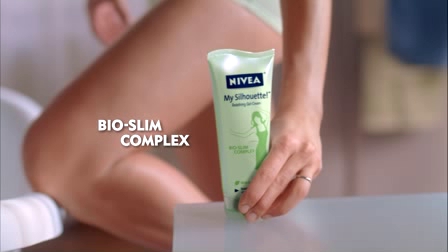As part of its ongoing efforts to protect consumers from over-hyped advertising claims,
the Federal Trade Commission reached a settlement requiring Nivea skin cream maker Beiersdorf, Inc. to stop claiming that regular use of its Nivea My Silhouette! skin cream can significantly reduce consumers’ body size. The company also has agreed to pay $900,000 as part of the settlement.
“The real skinny on weight loss is that no cream is going to help you fit into your jeans,” said FTC Chairman Jon Leibowitz. “The tried and true formula for weight loss is diet and exercise.”
The FTC administrative complaint charges Beiersdorf, Inc. with falsely claiming that by regularly applying Nivea My Silhouette! cream to their skin, consumers could slim down. According to the complaint, Beiersdorf, Inc. marketed the skin cream in nationwide television ads and through sponsored search results on Google. The company touted the cream’s “Bio-slim Complex,” a combination of ingredients that includes anise and white tea.

One television ad depicts a woman getting dressed after having applied Nivea My Silhouette! cream to her stomach and thighs. She digs through the back of her closet, tries on a pair of old jeans, and discovers that they now fit. During the ad, the voice-over says: “New Nivea My Silhouette! with Bio-Slim Complex helps redefine the appearance of your silhouette and noticeably firm skin in just four weeks. So you can rediscover your favorite jeans. And how they still get his attention. New Nivea My Silhouette! with Bio-Slim Complex. Touch and be touched.”
The company also allegedly purchased sponsored search results from Google so that when consumers searched on the words “stomach fat,” “nivea slim silhouette,” or “thin waist,” they found Beiersdorf ads implying that Nivea My Silhouette! could tone their stomachs, thin their waists, and help them slim down.
The proposed settlement:
- bars Beiersdorf from claiming that any product applied to the skin causes substantial weight or fat loss or a substantial reduction in body size.
- prohibits the company from claiming that any drug, dietary supplement, or cosmetic causes weight or fat loss or a reduction in body size, unless the claim is backed by two randomized, double-blind, placebo-controlled human clinical studies.
- requires that any claim regarding the health benefits of any drug, dietary supplement, or cosmetic be backed by competent and reliable scientific evidence.
The Wilton, Conn.-based Beiersdorf, Inc. is one of the largest sellers of hand and body care skin cream in the United States. Nivea My Silhouette! is sold at pharmacy and grocery stores in the United States.
Consumers should view with suspicion advertisements claiming that they can significantly reduce body size by applying a cream. For more information see: Weighing the Evidence in Diet Ads.
The Commission vote to accept the consent agreement package containing the proposed order for public comment was 5-0. The FTC will publish a description of the consent agreement package in the Federal Register shortly. The agreement will be subject to public comment for 30 days, beginning today and continuing through July 29, 2011, after which the Commission will decide whether to make the proposed consent order final. Interested parties can submit written comments electronically or in paper form by following the instructions in the “Invitation To Comment” part of the “supplementary Information” section. Comments in electronic form should be submitted using the following web link: https://ftcpublic.commentworks.com/ftc/beiersdorfconsent and following the instruction on the web-based form. Comments in paper form should be mailed or delivered to: Federal Trade Commission, Office of the Secretary, Room H-113 (Annex D) 600 Pennsylvania Avenue, N.W., Washington, DC 20580. The FTC is requesting that any comment filed in paper form near the end of the public comment period be sent by courier or overnight service, if possible, because U.S. postal mail in the Washington area and at the Commission is subject to delay due to heightened security precautions.
NOTE: The Commission issues an administrative complaint when it has “reason to believe” that the law has been or is being violated, and it appears to the Commission that a proceeding is in the public interest. The complaint is not a finding or ruling that the respondent has actually violated the law. A consent agreement is for settlement purposes only and does not constitute an admission by the respondent that the law has been violated. When the Commission issues a consent order on a final basis, it carries the force of law with respect to future actions. Each violation of such an order may result in a civil penalty of up to $16,000.
The Federal Trade Commission works for consumers to prevent fraudulent, deceptive, and unfair business practices and to provide information to help spot, stop, and avoid them. To file a complaint in English or Spanish, visit the FTC’s online Complaint Assistant or call 1-877-FTC-HELP (1-877-382-4357). The FTC enters complaints into Consumer Sentinel, a secure, online database available to more than 2,000 civil and criminal law enforcement agencies in the U.S. and abroad. The FTC’s website provides free information on a variety of consumer topics. Like the FTC on Facebook and follow us on Twitter.
(FTC File No. 0923194)
(Beiersdorf NR)
